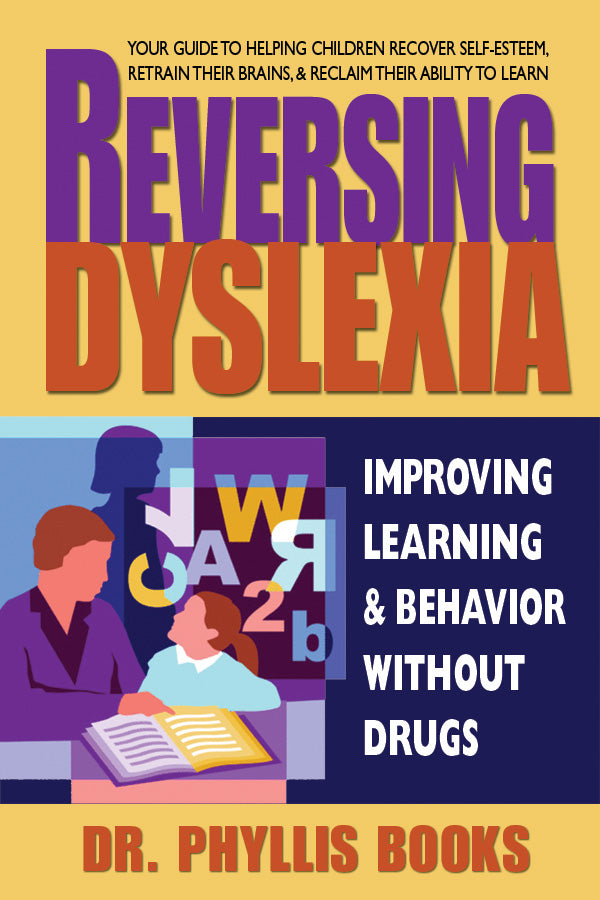The Point
Who would have thought that my very own learning disability
would have allowed me to become a book publisher.
It probably would have come as a shock to many of my teachers.
Learning disabilities such as the one that I have, dyslexia, aren’t all that much fun, or are they? I’ve given a lot of thought to how dyslexia has affected my life. What I’ve come up with are three things—the good, the bad, and the ugly—and I would like to share some of my thoughts.
First, let’s understand more fully what dyslexia is and then let’s look at the good, the bad, and the ugly that reside at the heart of this issue—and since I seem to get a lot of things backwards anyway, let’s start with the ugly.
What is dyslexia? In general, it is the inability to perceive words and numbers in the correct order. It can also be a lack of knowing your right side from your left. For some people it can make reading almost impossible—for others, it is something they learn to live with. I knew I had a problem early on, but it wasn’t until I saw a segment on CBS-TV’s 60 Minutes that I realized my problem had a name. The report focused on a Columbia University student with dyslexia and how she had sued the school because she was not allowed to audio-record lectures given by one of her professors. Because of her condition, she was unable to write down notes. She had won the lawsuit, and as the reporter discussed her problem, I realized that to a great extent I had many of the same issues. It was probably why I wasn’t too big on note taking, either. So what I had now had a name—and that was important for me to know.
The Ugly
While about twenty percent (20%) of the general population is said to have some form of dyslexia, forty-eight percent (48%) of prison inmates are also estimated to have this condition. Obviously, their individual life choices didn’t help them to avoid jail time—but from the start, neither did their inability to understand why school was so difficult or why they saw fewer opportunities for them to have a better life. I can understand the level of frustration they may have felt growing up, but so much has to do with the way you are raised. If I hadn’t begun working in my father’s bakery in Flushing, New York at the age of ten, perhaps my story would have been entirely different.
The Bad
I think it’s fair to say time has taught us that some teachers can be mean to those students whose responses are markedly different than what is expected from a question that they pose in class. In my high school History class, the question I was asked was how did the railroad change America’s expansion into the West? My answer? “The railroad brought many trains to the West.” The class apparently loved that answer and laughed very loudly. My teacher’s response was tersely worded: “Mister Shur, please leave the room.” It was only when the class was let out, and a friend told me what I had inadvertently said, that I understood why I got the laugh in the first place.
And then there was Math class. I had pretty much failed nearly all the tests. Keeping numbers straight was never easy. I spoke to the Math teacher about my grades, and she said that if I passed the Regents exam—a mandatory test given by New York State at the end of each secondary school year—then she would pass me. For weeks, I studied as hard as I could. I got a 66%, which was deemed a passing grade, but the teacher still failed me. Thankfully, I did pass the summer school course. And don’t get me started on my attempts to pass my driving test in order to get a license. Apparently, you really do need to know your left turn from your right. The fact of the matter is that you can’t control the symptoms of dyslexia, which I know all too well.
The Good
Without really knowing about it, I think dyslexia actually prepared me for adulthood. Initially, I learned to accept the fact that those mistakes of mine caused by dyslexia were going to be with me for the rest of my life. It was simply part of who I was, and instead of getting frustrated, I learned to do things over and over until I got it right. Whether it was editing manuscripts, writing articles, speaking in front of groups, or simply reading a book, these tasks took more effort but the outcome was worth it. All skills necessary to be in publishing—however, how I got into publishing is another story. As a book publisher, I have tried to take all the good that dyslexia has given me and publish books that are accessible, easy to understand, and jam-packed with solid information all worth knowing. In addition, my dyslexia has allowed me the opportunity to publish books specifically for children and adults who have learning disabilities. (See the list of titles below.) Hopefully, one of these titles can help someone like me to deal more practically with their own personal issues.
Considering all the possible outcomes, when all is said and done, it seems to me that my dyslexia has worked out just fine. After all, my expansion as a publisher over the years has brought many books to the North, the South, the East—and oh, yes, the West.

